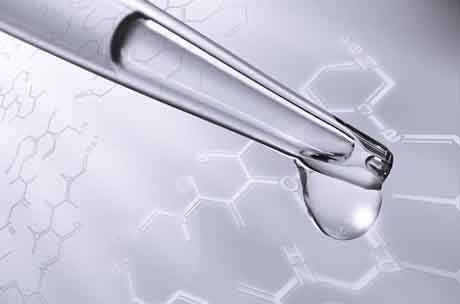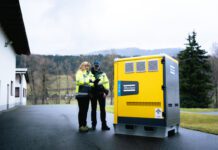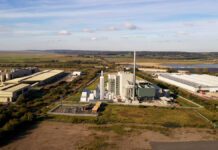
A public database developed by German water screening specialists promises to make it easier and faster for screening laboratories to identify unknown molecules in water. “The properties stored in the database will now enable testers to identify a large number of previously unknown molecules, even in non-target screenings,” said Professor Thomas Letzel, Chair of Urban Water Systems Engineering at Technische Universität München (TUM), one of the organisations behind the system.
Thousands of different varieties of molecules appear in the water samples typically taken by environmental specialists. But only a few hundred are amenable to today’s analytical tools, even what’s used in specialised laboratories.
So far over 8000 molecule profiles have been stored in the STOFF-IDENT database, including data on REACH-registered industrial chemicals, approved pharmaceuticals, pesticides and other substances from everyday products used by humans. It also lists degradation products found in the environment, like metabolites or transformation products.
Using this data, screening laboratories can identify unknown molecules faster, according to the developers. The technology deployed is referred to as non-target screening and generates “molecular fingerprints” that reflect the polarity and molecular mass of each identified molecule.
The database was developed in the context of the “RISK-IDENT” project funded by the German Federal Ministry of Education and Research (BMBF), and was completed in March 2015.
Global ambitions
The follow-up project “FOR-IDENT”, which is funded by the BMBF until 2017, aims to extend the database to include locally approved and utilized chemicals in many different locations. The scientists also hope to bundle together and harmonize all the evaluation strategies used internationally. To this end, the project aims to include data from the manufacturers of analytical instruments, as well as laboratories around the globe. An open software platform in which the different evaluation strategies are combined and linked will evolve over the project lifespan. The open-access approach will ensure that companies, authorities and scientific institutions will have long-term, free and unlimited access to the evaluation tools and databases.
Data from measurements carried out by water analysts will remain available for future evaluations. This has a number of advantages. For example, when information is added to the database or new evaluation strategies are developed, previously taken samples must not be analyzed anew – the acquired data can retrospectively be analyzed. Laboratories, authorities and public works only need to archive the results of their analyses, not the actual samples. Consider the example of a trace substance that is identified as potentially harmful to marine life or as a threat to human health in drinking water: If the substance in question is found in archived samples, this information can be rapidly integrated into routine tests. This will also make it possible to determine where the substance entered the water and in which concentrations; and whether technical recovery measures need to be initiated.
“This will lay the foundation for a preventative water control system that will be deployed more and more as the number of new evaluation strategies grows,” said Prof. Letzel.
A major remaining challenge is ensuring that the analysis methods are deployed effectively so that structures can be determined and the respective substances identified conclusively. The aim of the “FOR-IDENT” project is thus to improve the efficiency and comparability of suspect and non-target analyses. To this end, the available tools will be bundled together, quality requirements for the methodology defined and the processes and methodologies standardized.
To promote the discussion and harmonization of national and international strategies and workflows at global level the “FOR-IDENT” project will host regular conferences and workshops over the next two years. Among other events, the TUM scientists will organize a workshop to discuss transatlantic strategies at the 250th conference of the American Chemical Society from August 16 to 20, 2015 in Boston, Massachusetts.
“FOR-IDENT” is part of the BMBF-funded project “Risk Management for New Harmful Substances and Pathogens in the Water Cycle (RiSKWa)” in the special funding program “Sustainable Water Management (NaWaM).”
The database was developed by a collaboration between the TUM, water specialists at the Bavarian Environmental Agency (LfU), the University of Applied Sciences Weihenstephan-Triesdorf (HSWT), and the Baden-Württemberg special purpose water supply association Landeswasserversorgung.






